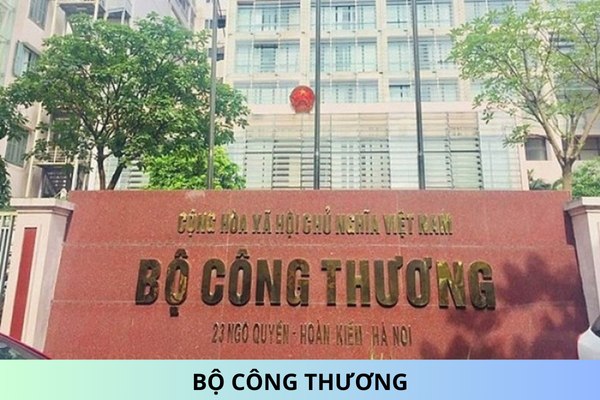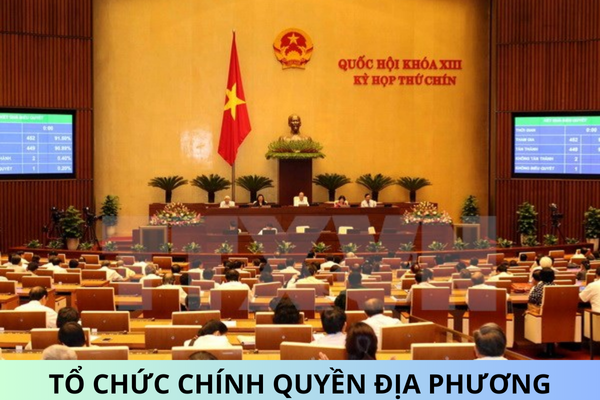If party members lose their membership card, will they be disciplined in Vietnam? How long will it take for party members to be removed from the Party if they don't pay the party fee in Vietnam?
If party members lose their membership card, will they be disciplined in Vietnam? How long will it take for party members to be removed from the Party if they don't pay the party fee in Vietnam? What are extenuating circumstances for Party members in Vietnam?
Hello. I am a Party member, I lost my Party card while moving house, so I am a little worried that losing my card may be subject to disciplinary action? So, if party members lose their membership card, will they be disciplined?
I hope you can help me. I sincerely thank you.
If party members lose their membership card, will they be disciplined in Vietnam?
In Clause 1, Article 29 of Regulation 69-QD/TW of 2022, which prescribes handling of violations of regulations on organization and staff:
1. Party members who violate one of the following circumstances, causing less serious consequences, shall be disciplined in the form of reprimand:
a) Interfering with and influencing competent organizations and individuals to have themselves or others elected, appointed, planned, appointed, re-appointed, rotated, transferred, relieved of duty, resigned; nominate, stand for election, go to school, confer, promote, recognize titles, rank ranks, consider recognition of title standards, rank promotion exams, raise wages, go abroad, implement staffing regimes and policies wrong direction.
b) Directing or requesting the appointment of persons who do not meet the conditions and criteria as prescribed .
c) Improperly implementing the principles, processes and procedures of personnel work; failure to comply with regulations on personnel work; falsifying or arbitrarily correcting documents and records of party members, officials, public servants, public employees and employees; comments and evaluations of officials are groundless, dishonest and unobjective.
d) Failling to comply with decisions on appointment, transfer, rotation, assignment of work, leave from the regime, sending to school, transfer of party activities according to regulations.
d) Appraising, advising, proposing, deciding on the admission, recruitment, promotion of ranks, grades, attendance, planning, appointment, re-appointment, rotation, election introduction, candidacy, commendation, promotion, promotion of rank, recognition of titles, consideration for recognition of standard titles for fathers, mothers (in-law), spouses, biological children, adopted children, brothers, sisters (in-law) do not meet the criteria and conditions.
e) Directing or appraising, advising, proposing, recruiting, receiving, arranging work, appointing, conferring, promoting, recognizing titles, ranks, considering recognition of qualified titles, rotation, mobilization, rank promotion, commendation, and disciplining in contravention of principles, processes and regulations; planning, training, and sending unqualified people on business trips abroad.
g) Losing a party member card without a legitimate reason; comments, requests for admission and recognition of official party members who do not meet the criteria, conditions, processes and procedures; improperly complying with regulations on the transfer of party activities by party members or submitting dossiers for transferring party activities in contravention of regulations ; failing to write a report on the transfer of party activities of a party member; Confirming Party age for Party members is not in accordance with regulations.
h) Inadequate and untruthful reporting, filing, and brief profiling, personal and family history. Declaring a party member's background does not match his own political characteristics and family relationships.
2. If a person who has been disciplined under Clause 1 of this Article re-commits or commits a violation for the first time, causing serious consequences, or violates one of the following circumstances, the discipline shall be in the form of warning or dismissal (if there is a person in charge):
a) For personal motives, transfer, dismiss, dismiss, relieve from duty, discipline , and settle regimes and policies for cadres, party members, civil servants and public employees workers do not comply with regulations.
b) Directing or receiving, recruiting, arranging and arranging personnel who are not permitted by law to work at their agencies, units or organizations.
c) Taking advantage of regulations on rotation, periodically changing working positions to persecute cadres, party members, civil servants, public employees and employees.
d) Covering cadres, party members, civil servants, public employees and employees who are being examined, inspected, investigated or disciplined.
dd) It is irresponsibility or personal motivation to direct or carry out the appraisal, proposal, decision on recruitment, planning, appointment, rotation, nomination for election, candidacy, promotion, appointment and rank, recognition of titles, consideration for recognition of standard titles, rewards not in accordance with standards, conditions or decisions to discipline unjustly, wrongly cadres, party members, civil servants, public employees and employees.
e) Acts of dishonesty in order to be promoted, promoted, raise salary, be considered for recognition of title standards, commendation, recognition of titles or enjoy regimes and policies contrary to regulations.
g) Advising the competent authorities to decide or give opinions on the organization and cadre work that is not in accordance with the principles, processes, procedures and competence. Certifying, commenting, evaluating untrue or falsifying personnel records, election results, such as recommendation votes, confidence votes, recruitment and selection examinations.
h) Abusing the position and power of the head to make decisions improperly with principles, regulations and competence on organization and cadre work.
i) Being dishonest, not exemplary , knowing that they do not meet the standards and conditions but still seeking ways to be received, recruited, planned, rotated, appointed, introduced for election or candidate, conferment, promotion, recognition of titles, ranks of positions, consideration for recognition of standard titles, commendation, and failure in accordance with regimes and policies contrary to regulations.
k) Lacking responsibility or personal motivation to lose or lose files of officials, party members, documents and files of party organizations under their management; provide personnel records, party member records to the irresponsible.
l ) Taking advantage of the mass media and social networks to report untruthfully, distort , incite, cause internal disunity, and adversely affect human resource work.
3. In case of violation specified in Clause 1, Clause n 2 of this Article, causing very serious consequences or violating one of the following cases, the discipline shall be in the form of expulsion:
a) Brokering, accepting bribes in receiving, recruiting, appointing, appointing, re-appointing, arranging jobs, raising wages, raising ranks, commending and rewarding employees, disciplining, considering recognition of job standards honor, consider conferring titles for cadres, party members, civil servants, public employees and employees.
b) There is an act of running away from age, working seniority, title, discipline, degree , working position, rotation, etc. to benefit themselves or others.
c) Abusing positions, powers and working positions to create conditions, influence or interfere in contravention of regulations on the receipt, recruitment, planning, mobilization, rotation, appointment and distribution of regulations. staff position.
d) Forging, falsifying dossiers and documents in order to go to school, receive or recruit into agencies or organizations.
d) Using party membership card , branch card, civil servant card to mortgage, pledge to borrow money or property.
Thus, if you lose your Party card without a valid reason, you will be disciplined. Depending on the seriousness of the consequences of losing your Party card, you may be disciplined with different forms such as reprimand, warning, dismissal or expulsion from the Party in Vietnam.
How long will it take for party members to be removed from the Party if they don't pay the party fee in Vietnam?
According to Clause 8.1, Section 8 of Regulation 24-QD/TW in 2021, the name of party members is deleted, specifically as follows:
8.1. Delete the party member's name.
The Party cell considers and proposes to the competent Party committee to decide to remove the name from the list of party members in the following cases: Party member quits party activities or fails to pay party fees for three months in a year without plausible reasons; Party members voluntarily return party membership cards or self-destruct party membership cards; party members have reduced their will to strive, failed to perform their duties as party members, have been educated by the Party cell but have not made any progress after 12 months of striving; Party members for two consecutive years violate party membership status; Party members do not meet the political standards prescribed by the Politburo.
According to this Article, Party members who do not pay party fees for three months of the year without a valid reason will be removed from the Party in Vietnam.
What are extenuating circumstances for Party members in Vietnam?
Pursuant to Clause 2, Article 5 of Regulation 69-QD/TW of 2022 stipulating extenuating circumstances of the disciplinary level, specifically as follows:
In case of violation with one or more of the following circumstances, the disciplinary level shall be considered and reduced:
1. For party organization
a) Proactively and promptly report violations to the superior party organization, have a serious attitude of self-criticism, voluntarily acknowledge shortcomings and violations, and accept disciplinary measures commensurate with the violations.
b ) Take the initiative in providing information, documents and evidence that fully and honestly reflect the violation.
c) Actively put an end to violations and basically and promptly remedy the consequences caused by their organization's violations before and during the inspection and supervision process.
d) Assist competent party organizations in examining, considering and accurately and promptly handling violating organizations and individuals.
2. For Party members
a) Actively report their violations to the party organization, voluntarily accept personal responsibility for shortcomings and violations, and self-recognise a disciplinary form commensurate with the content, nature and seriousness of the violation before and during inspection and supervision.
b) Actively provide information, records and documents, fully and honestly reflect on the same violators.
c) Actively put an end to violations, actively participate in preventing violations; voluntarily submit corrupt assets, compensate for damage, and remedy the consequences caused by them.
d) Violation when implementing the policy or piloting innovation as permitted by the competent authority as prescribed, other than the case specified at Point dd, Clause 14, Article 2 of this Regulation.
With this provision in Vietnam, the extenuating circumstance of disciplinary level will be applied to individual Party members when one of the above acts is committed.
Best regards!











